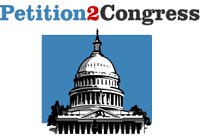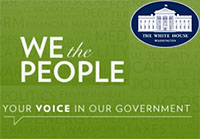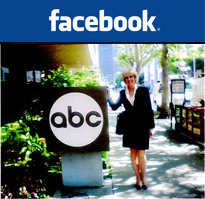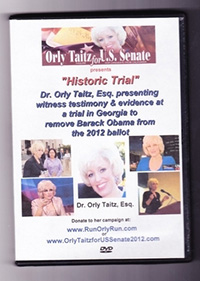Negotiators have finalized the Trans-Pacific Partnership (TPP), a complex trade deal between 11 Pacific countries that together make up about 40 percent of the global economy. The agreement will give the Obama administration a signature achievement if it’s approved by lawmakers.
Since spring, the Pacific trade negotiations have divided Democrats while finding support from most congressional Republicans, including Senate Majority Leader Mitch McConnell. Opponents on the left and right have a variety of fears about the TPP, ranging from its level of secrecy (the full text is unavailable to the public, though excerpts have been leaked online) to the belief that it could shift U.S. jobs overseas.
Chances are, the president will secure passage. In July, Congress voted to give Obama trade promotional authority (TPA), effectively allowing the administration to “fast-track” the deal toward a simple “yes” or “no” vote from lawmakers, without endangering the negotiations with domestic squabbles over amendments. The authority has benefited other presidents who have been able to pass controversial agreements.
Try Newsweek for only $1.25 per week
In the presidential campaign, the TPP separates the populists from the mainstream candidates. There has been no more vocal critic than Donald Trump. The real estate mogul has called the deal “an attack on American business.” Trump, who considers himself a world-class negotiator, has on several occasions stated (in fewer words) that America’s trade deals are negotiated by incompetents. His populist-nationalist rhetoric illustrates the two-pronged thrust of the anti-TPP conservatives: promise to keep American jobs at home and oppose anything that the president does.
Carly Fiorina merely said that she was “uncomfortable” with the deal back in May. Ben Carson has said that Americans should have a say in trade deals through their representatives, but he’s not exactly running on economics.
The most virulent Republican critics come from the bottom of the polls. Mike Huckabee, Bobby Jindal and Rick Santorum all publicly opposed TPA and the accompanying trade deal. But among them, only Jindal currently holds office, and as the governor of a Southern state, he’s comfortably positioned to lambast the president without having to stand up to party leadership in the Senate. Even Senator Ted Cruz, who in the past has called Obama a “lawless imperator” and slammed his own party’s leadership for failing to block the Iran nuclear deal, sided with his enemies on fast-track authority. He even penned an op-ed with Representative Paul Ryan in support of TPA. Senator Marco Rubio wrote a similar piece in support of not just the negotiation provision but the entire TPP as well, making Rand Paul the only holdout among the senators running (he was one of five Republicans to vote against TPA).
On the Democratic side, Hillary Clinton was instrumental in advocating for fast track as Obama’s first secretary of state. She has since been accused of flip-flopping on the deal and has yet to give it her full endorsement.
Many unions oppose the deal, giving workers’ advocates like Bernie Sanders common cause with the populist wing of the Republican Party. Clinton’s main rival in the polls, Sanders has called the TPP “job killing” and said “it was drafted with input by special interests and corporate lobbyists but not from the elected representatives of the American people.”












 29839 Sta Margarita Pkwy,
29839 Sta Margarita Pkwy, 
 Videography by Barbara Rosenfeld
Videography by Barbara Rosenfeld 


October 5th, 2015 @ 4:11 pm
Ask https://FBI.gov 5min Probe Proof Obscama is bin Laden https://www.youtube.com/watch?v=HuMShxAq7XQ
Cruz PAC was BUSTED Sending $500K to Fiorina Campain
October 5th, 2015 @ 4:59 pm
The DNC is preventing the GOP from creating Jobs here so thank God for Trump realizing this. But don’t blame the GOP for being forced by Qbama and the democrats to go elsewhere for stuff we need to survive. Over the years the GOP led the world and this country in building energy and industry. They built the oil industry around the world and that is what created this worlds industrial revolution. The democrats didn’t own it so they hated it and ended up tearing it down. They ran up trillions in debt to try to transfer the wealth of industry into their own pockets with insane schemes and as a result they have us shut down. Our only hope is that enough people start getting this soon. If we truly need a different form of energy then the GOP and free enterprise is the best way to find it. The democrats can be a part of that if they would just stop hating the freedom of the free enterprise system gold mine.
October 5th, 2015 @ 7:37 pm
And they wonder why there is so much violence in our country! NO JoBS. My MomHad a saying: Idle hands is the devils workshop”
October 5th, 2015 @ 7:45 pm
Rich, I agree 100%! You are exactly right on sir!
Kevin, Yes, I posted that information in another thread on this site somewhere, Cruz is done, and Uncle Donnie should call him out for it. He’s only trying to buy a Vice President’s seat with Carly F. if she’s the chosen one, however under the constitution both are ineligible for the position. We the people need call Cruz out on his eligibility. And by Uncle Donnie winning the GOP ticket we will have no problem getting rid of them. I just hope that the Donald see’s what’s going on with Cruz and see’s what he’s up to and doing and will not fall for his political back stabbing tactics. And Donald if you read Orly’s site, have your people check into how Cruz’s super PAC sent Carly’s campaign the $500,000.00 and you find out why it was sent. My guess it was sent to upset your campaign for president or bribery money for a Vice President spot. One or the other. I call it a down right dirty tactic.
October 5th, 2015 @ 8:38 pm
Neither eligible to be president since they had parents who were not citizens when they were born.
October 6th, 2015 @ 4:51 am
What does one expect from representatives whose U.S. heritage is only superficial, having conflicting, compromised, allegiance. Just like the fraud obama, they have no loyalties to their questionable U.S. heritage.
October 6th, 2015 @ 7:43 am
Our biggest threat today are bogus elections controlled by the Gay media and DNC. Not the inability of the GOP to stop it. We must inform those who have been led down the primrose path by DEFICIT SPENDING entitlements and special rights if we are going to survive.
October 6th, 2015 @ 9:41 am
Notice the following from 14th Amendment and
1866 Civil Rights Act. Also see clause subject to jurisdiction thereof in 14th Amendment.
You have Rubio who does not qualify due to 14th amendment and Cruz who revoked his Canadian citizenship which made him a Automatic Naturalized Citizenship under 1940 and subsequent Naturalization laws. What does that make him-a stateless person? Neither Cruz or Rubio qualifies for the Office of President under the Constitution. What this country needs is a law putting people like Cruz and Rubio in prison for life terms.
The Citizenship Clause is the first sentence of Section 1 in the Fourteenth Amendment to the United States Constitution, which states that “All persons born or naturalized in the United States, and subject to the jurisdiction thereof, are citizens of the United States and of the State wherein they reside.” This clause represented Congress’s reversal of a portion of the Dred Scott v. Sandford decision which had declared that African Americans were not and could not become citizens of the United States or enjoy any of the privileges and immunities of citizenship.
The Civil Rights Act of 1866 had already granted U.S. citizenship to all persons born in the United States “not subject to any foreign power”. The 39th Congress proposed the principle underlying the Citizenship Clause due to concerns expressed about the constitutionality of the Civil Rights Act during floor debates in Congress.[1][2] The framers of the Fourteenth Amendment sought to entrench the principle in the Constitution in order to prevent its being struck down by the Supreme Court or repealed by a future Congress.